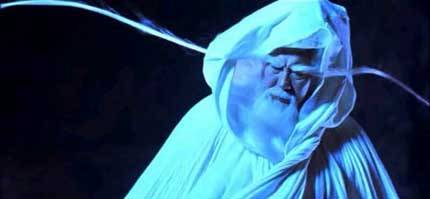 |
Bai Mei (White Eyebrows) |
 |
 |
A eunuch and Taoist monk from mount Wudang who took part in the destruction of the monastery of South Shaolin, in the province of Fujian, which was organized by the emperor Yongzheng of the Qing dynasty. He is played by Sammo Hung in Zu: Warriors of the Magic Mountain and Legend of Zu, two films by Tsui Hark dedicated to mount Zu (E mei shan) and in the parody Evil Cult by Wong Jing. In Executioners from Shaolin by Liu Chia Liang, he is played by Lo Lieh.
 |
 |
 |
top |
 |
 |
Battling Babes |
 |
 |
| Women have always come off best in HK cinema. Never letting themselves be impressed by men, those so-called superior beings, the fair sex doesn't hesitate in fighting… and when they do, it's like nobody's business! One can go back to Cheng Pei Pei, Hsu Feng, Angela Mao, Kara Hui, Sharon Yeung Pan Pan or more recently to Moon Lee, Yukari Oshima, Sibelle Hu, Cynthia Rothrock, Cynthia Khan, or Michelle Yeoh. Sometimes martial arts experts at a very early age, or discovering kung fu late in life, all those ladies know how to fight on the screen. They don't any longer play the foils or bimboes to the male star, but can thrash the most dangerous opponents: they are therefore nicknamed 'battling babes' by Anglophones. |
 |
 |
top |
 |
 |
Big Brother |
 |
 |
| Big Brother aka 'Tai Lo' in Cantonese. Besides its literal meaning, the term 'big brother' is often used to call a leader, an elder for whom one has a profound respect. Sammo Hung for example is regularly called that way by his former workmates from Peking Opera and by his team. The phrase has been seriously corrupted by the triads, the leader of a triad often being the other members' 'big brother'. |
 |
 |
top |
 |
 |
Boxer Rebellion, The |
 |
 |
The Boxer Rebellion occurred in 1900 under the Qing dynasty. The secret society of the ‘Righteous and Harmonious Fists’ (hence their name of boxers) was a nationalist and xenophobic movement directed against notables, especially Manchu ones. The Manchurian government very cleverly manages to channel the sect and to direct it against the foreigners who shared China between them after the Opium War. In June 1900, the Boxers invade the Catholic missions and besiege the foreign legations. A German minister and numerous priests are killed during the assault. But the foreign powers reacted in a livelier manner than the government had thought and an international task force is sent to the rescue. Peking is taken in August 1900 and the siege ended after 55 days. The Empress Dowager Cixi had to flee with the Emperor and couldn’t come back to the capital city until 1902 after having signed a disastrous treaty for China. Those events would speed up the fall of the dynasty to the benefit of reformers such as Sun Yat-Sen.
In cinema, the event was brought to fame (from a Western point of view) in 55 Days at Peking. Surprisingly enough, HK cinema has never adapted the event onto the screen, preferring it as a background from time to time for other stories as Bloody Avengers by Chang Cheh.
Arnaud Lanuque
|
 |
 |
top |
 |
 |
Buns |
 |
 |
Stuffed doughnuts that the Chinese are fond of (and so am I … my mouth is watering).
|
 |
 |
top |
 |
|

|
